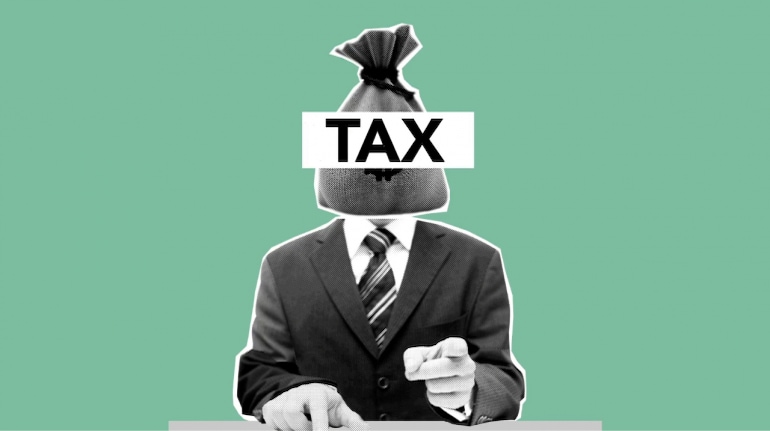
The new tax regime was introduced in the Finance Act, 2020, with the intention to provide an option of a simplified tax structure and lower tax rates for those who forgo certain deductions and exemptions. Effective from financial year (FY) 2020-21, the new tax regime is for individuals and Hindu Undivided Families (HUFs) and is an alternative option to the old tax regime.
Though this was welcomed by a section of taxpayers, many chose to continue with the old tax regime, which permitted the claiming of deductions/exemptions. To make the new tax regime more popular, the Finance Act, 2023, brought in the following changes:
· It has now become the default tax regime, and unless one opts out, it would be the tax regime that would be used for computing taxes.
· The new tax regime has now been extended to association of persons, body of individuals and artificial juridical persons.
· Rebate under Section 87A has been increased under the new tax regime for income up to Rs 7 lakh against Rs 5 lakh in the old tax regime.
· The benefit of standard deduction has also been extended to the new tax regime.
· The rate of tax surcharge for applicable persons has been capped at 25 percent for individuals with total income over Rs 5 crore, versus 37 percent in the old tax regime.
· Employer contribution to the National Pension System (NPS) has been allowed as an eligible deduction. It may be noted that employee contribution to NPS, which is eligible for deduction under Section 80CCD(1B) of up to Rs 50,000 per annum under the earlier tax rule, is not allowed as a deduction under the new tax regime.
Also read | ITR filing: Switching between old, new tax regimes possible, with some hassles
Employer liability
With the new tax regime becoming the default option, employees who wish to be governed by the old tax regime will have to say so to their employers. If there is no express intention provided to the employer, it would be assumed that the employee is content to go with the new tax regime.
In such a case, exemptions/deductions such as house rent allowance, leave travel allowance (LTA), payment for life insurance, health insurance, interest on housing loan for self-occupied property, etc., would be disallowed.
Assessees (who do not have income from business or profession) can choose the regime that is more beneficial at the time of filing the tax return. A person having income from business or profession would have to file Form 10IEA before the due date for filing return of income under Section 139(1) to opt out of the new tax regime, and file again in the year in which he or she wants to re-enter the new tax regime. The option to switch regimes is available only once for a person with income from business or profession.
Also read | ITR Filing: Don’t forget to declare income from ‘other sources’ when filing tax returns
Selection of tax regime for tax withholding vs tax return
In a recent circular, the Central Board of Direct Taxes clarified that intimation of the chosen tax regime to the employer will not be tantamount to selecting the tax regime for tax return purposes. Individuals who do not have a business or profession can select the regime when filing their tax returns.
In the aforesaid scenario, care needs to be taken that if Form 16 has been prepared with the old tax regime and, in the tax return, the new tax regime is considered, the exemptions/deductions as per the old tax regime should not be claimed in the tax return.
Also read | A last-minute tax guide for crypto investors
Brought forward balance of LTA
If an employer has LTA in the compensation structure, the employer can continue giving the option of such allowance as part of the salary structure. However, only those employees who select the old tax regime would be able to claim the exemption.
Unutilised LTA can be carried forward to subsequent years, and if the old tax regime has been opted for in those subsequent years, the exemption can be claimed, subject to fulfilling the conditions mentioned in the act and rules.
Also read | ITR filing: Salaried tax-payer? Know how to choose between forms ITR-1 and ITR-2
Losses from house property
Under the new tax regime, interest on home loan for a self-occupied property cannot be claimed as a deduction. Further, the current year’s losses cannot be set off against other income in the current year, and even the carry-forward of such losses is not allowed as per the Income-tax Act. Accordingly, loss of the current year will lapse entirely.
Also read | Section 80D: Ensure you claim all tax benefits on health insurance premiums while filing I-T returns
Belated return
If the old tax regime is opted for, tax returns need to be filed by the due date, else the taxpayer would have to mandatorily file under the new tax regime.
Thus, the default tax regime could impact individuals if a comparative analysis between the two regimes is not undertaken promptly.
Ajay Nahata and Hiral Tanna contributed to this piece.
(Ajay Nahata is a director and Hiral Tanna is a manager with Deloitte India. The views expressed are personal).
Discover the latest business news, Sensex, and Nifty updates. Obtain Personal Finance insights, tax queries, and expert opinions on Moneycontrol or download the Moneycontrol App to stay updated!